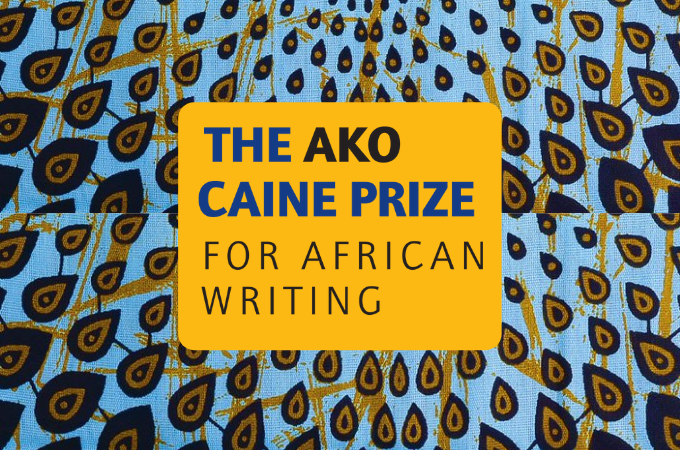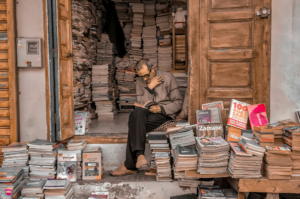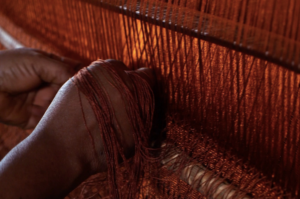
The year 2000 marked a shift in African literature. After the so-called “book famine” of the 80s and 90s, the 2000s came with a rich harvest. This story of an African literary renaissance is complex and includes many players and cultural forces, one of which is the establishment of the Caine Prize for African Writing (now AKO Caine Prize) in 2000.
From its inception, the AKO Caine Prize has contributed to fostering the global visibility of African literature. That is not to say that African literature was ever in obscurity. 9 years before, Ben Okri had won the Booker Prize for a book centered on African mythology, and Nadine Gordimer won the Nobel Prize for Literature. But the Caine Prize changed something fundamental about the African literary scene. It provided an outlet for new writers seeking a global audience. Many of our beloved writers making waves on the continent and the world today—Leila Aboulela, Namwali Serpell, Helon Habila, Noviolet Bulawayo, Yvonne Owuor, just to name a few—enjoyed the support of the Caine Prize at some point in their journey as writers.
Now in its 20th year, the AKO Caine Prize, awarded annually, is a major short story prize on the continent. The prize is named after the late Sir Michael Caine, former Chairman of Booker plc and Chairman of the Booker Prize management committee for nearly 25 years. After his death, the Caine Prize was established with a £10,000 cash prize awarded annually. Over the years, the prize has enjoyed the support of prominent African literary figures like Wole Soyinka, J.M. Coetzee, Naguib Mahfouz, and Nadine Gordimer. But the reason the prize continues to be relevant 20 years on is the depth of its impact in the African literary landscape.
Even though the prize is funded by British cultural institutions, it has always reflected the pan-African spirit of contemporary African literary culture. In 2000, when Sudanese writer Leila Aboulela won the inaugural prize, her win was announced in an event at the Zimbabwe International Bookfair by a judging panel that included Nigeria’s Ben Okri and Cote d’Ivoire’s Veronique Tadjo. The prize has continued to maintain this inclusive approach to its curation of the African literary scene.
The AKO Caine prize has struggled with its identity. Is it a prize for emergent voices or a prize for established authors? But as prize chairperson Ellah Wakatama and prize administrator Dele Fatunla clarify in a message to Brittle Paper, “We have met and, in some cases, introduced the world to some of the most brilliant voices in African literature, as well as beautifully rendered characters and explorations of the African and human experience. We have never been a prize merely for discovery of new or emerging talent, but also existed to celebrate them alongside the most esteemed of storytellers.”
Whether it is in introducing new talent or rewarding the excellence of established writers, the Prize showcases the wealth of African writing and energizes Africa’s literary cultures. In East Africa, for example, it contributed to the establishment of one of the region’s landmark literary platforms. The late great Binyavanga Wainana helped establish Kwani? after he won the Caine Prize in 2002. Kwani? published Yvonne Adhiambo Owuor’s short story “Weight of Whispers,” which went on to win the prize in 2003. The magazine also played a key role in the success of writers like Uwem Akpan, Billy Kahora, Ayobami Adebayo, Jennifer Makumbi, and many others. Indeed, the influence of the AKO Caine prize extends far beyond the annual short story competition.
20 years is enough time for a cultural organization to lose public interest either by not keeping up with technological shifts or with the spirit of the times. But the Caine Prize has remained relevant because of its mandate of inclusion and diversity. Its objective of “encouraging as many diverse voices as possible in the republic of African writing” has enabled it to evolve with the times. By investing in writers through workshops, embracing web culture by accepting entries from online platforms, and “encouraging more entries translated from the plethora of languages spoken and written in Africa,” the prize has showed itself to be adaptable to new challenges. In keeping with its openness to constantly evolving, the prize changed its name to The AKO Caine Prize to recognize the support of a new donor. AKO Foundation is a London based charity that provides grants to projects that promote the arts, improve education and mitigate climate problems.
Even in times of global crisis, this adaptability has ensured the prize’s consistency in creating a space for meaningful expression. This year’s award was unique in a number of ways and broke some records. The award received 222 submissions, the largest number of entries since its inception. These came from a record 28 African countries. But in the wake of the Corona crisis, it wasn’t clear how these milestones would be celebrated. The prize stepped up to the demands of the moment and commissioned British-Nigerian filmmaker Joseph Adesunloye to produce and direct a documentary film to celebrate the shortlist and announce the winner, a complete detour from previous announcements that usually happened at an award ceremony held in London every June.
For lovers of African writing, the AKO Caine Prize has become a barometer of literary trends. The archive of shortlisted stories reflects the changing directions in African literary practice — from the realist fiction in the early 2000s to more experimental work in magical realism and science fiction in the late 2010s. As Wakatama and Dele Fatunla emphasize: “[The AKO Caine Prize] has…continued to push the boundaries of storytelling, and now more than ever it is witnessing exciting experiments with form, style and theme; some of that was reflected in this year’s shortlist and winning story.”
Literary institutions are indispensable in the expansion of literary culture. The AKO Caine Prize is a thriving institution and one that deserves the goodwill of the literary community. We hope it continues to nurture spaces for global African expression and foster a culture of African literary excellence.
If you’d like to know more about the amazing work they are doing to expand Africa’s literary culture, follow them on Twitter and Instagram and visit them at caineprize.com.








COMMENTS -
Reader Interactions